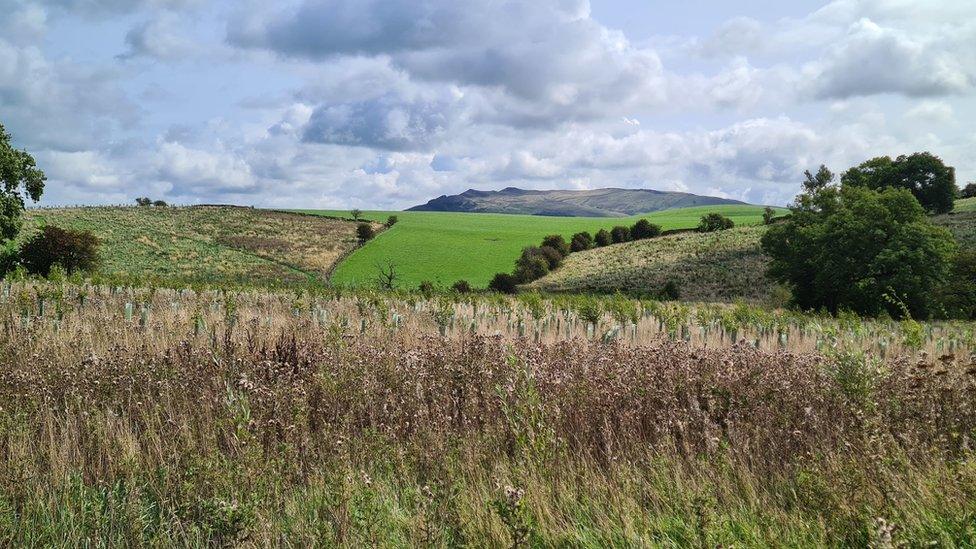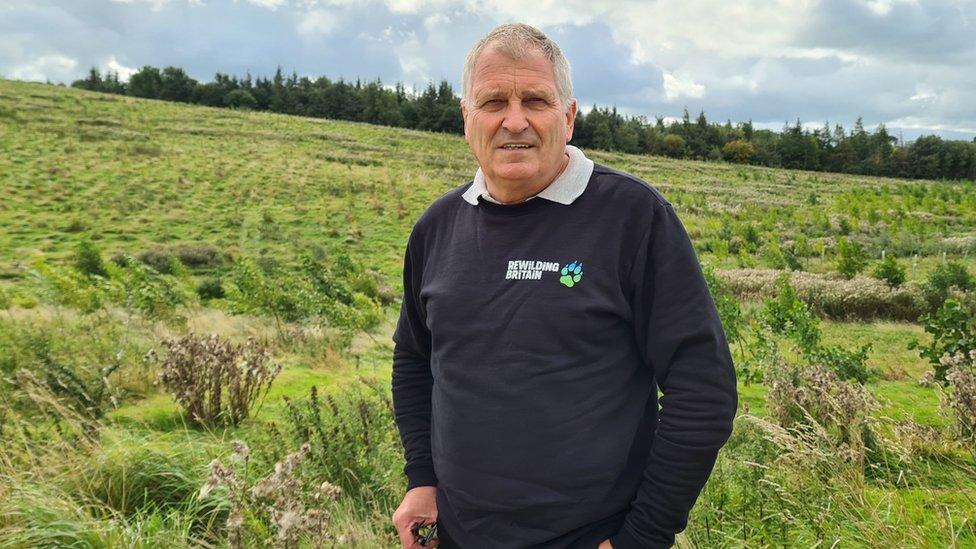Rewilding project transforms bare hillside near Skipton
- Published

Once bare hillside, the site is being slowly transformed
A bare North Yorkshire hillside has been transformed into a young woodland providing a new habitat for increasing numbers of creatures.
Over three years more than 300,000 trees have been planted at Broughton Sanctuary, near Skipton, as part of a rewilding project.
It aims to restore 400 hectares which was once home only to grazing sheep.
The project has already seen an increase in insects, rodents and birds of prey.
"I'm capturing 10 times the number of moths as before rewilding," said Prof Alastair Driver, director of Rewilding Britain and Broughton's special advisor.
He said although the project was only at the halfway point they were seeing results.
"This is going to become an oasis of bio-abundance."
Removing sheep was the first step towards growing a woodland that, once matured, can absorb up to 60 times more water than open pasture, reducing the chance of flooding for people living downstream.
"Generations of little feet compacting the soil means water runs right off it," said Prof Driver.

Prof Driver said the site was becoming an "oasis of bio-abundance"
The team also plan to create wetlands and ponds, reintroduce beavers, plant native trees and use short-horn cattle to trample some of the vegetation, creating space for seedlings.
Prof Driver said the work to date had seen a big increase in birds of prey and on one night eight barn owls were seen hunting in the same field.
"That shows you how much prey there is that they don't have to compete with each other," he said.
Rewilding Britain's plans have been criticised by some farmers over the loss of land for food production and the possibility of reintroducing predators such as lynx and wolves, long extinct in the UK.
Prof Driver said the return of wolves was not likely in his lifetime, though lynx were "doable".
He also said he would never advise landowners to take productive land out of use.
"Most estates don't rewild the whole estate but only the most unproductive bits," he said.

Follow BBC Yorkshire on Facebook, external, Twitter, external and Instagram, external. Send your story ideas to yorkslincs.news@bbc.co.uk, external.